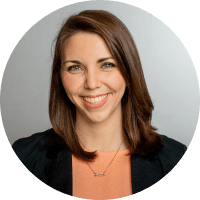The benefit of learning together with your friend is that you keep each other accountable and have meaningful discussions about what you're learning.

Courtlyn
Promotion and Events Specialist
Strengthening Healthcare Organisations with Quality Leadership Development.
Download Brochure
26 June 2024
12 Weeks, Online
4-6 hours a week, 3 Live Sessions with Faculty
US$2,200 and get US$220 off with a referral
Participants report that enroling in a programme with colleagues fosters collaborative learning and amplifies their impact.
Please provide your details to get more information about the group-enrolment pricing.
The benefit of learning together with your friend is that you keep each other accountable and have meaningful discussions about what you're learning.

Courtlyn
Promotion and Events SpecialistApply before 03 May 2024 and avail early bird tuition assistance of USD75. Use code APAC75ALL7310 while applying.
WhatsApp an Advisor on +65 8014 3066
Have questions? Our Advisor will assist you promptly.

Comprehensive programme design, covering all the 3 core pillars of Leadership in Healthcare

Asynchronous learning via 100+ video lectures

Use of 3 case studies and 16 real-world examples for applications of conceptual frameworks

Intensive learning via 45 assignments and 11 frameworks

3 live sessions with faculty

1 leadership tool

Opportunity to connect with healthcare professionals/leaders across the global and healthcare value chain via 5+ discussion boards

Capstone project
Features:
Features:
Features:
Features:
Features:
Features:
Features:
Features:
Salient Features:
Features:
Toward the end of the programme, you will demonstrate your newly gained leadership skills by applying what you learned to a real-world healthcare issue/problem.
Through real-world examples from diverse healthcare settings and scenarios embedded within the modules, you will see how the theories are put into practice.









Note: All brand, product and company names are trademarks™ or registered® trademarks of their respective holders. Use of them does not imply any affiliation with, endorsement by, or association of any kind between them and programme owners.
These case studies are co-authored by Professor Audrey Chia and span across pertinent topics of Human Resource Management, Change Management, Healthcare and Treatment, and Corporate Social Responsibility.

The case illustrates the effort of Duke-NUS Graduate Medical School's pioneering faculty in transplanting the U.S Duke University School of Medicine curriculum to the Singapore context, where the British style of medical education had been dominant. The case examines the challenges, skepticism, and eventual support from both internal and external stakeholders.

This case illustrates the success of the Zuellig Family Foundation's health care programme in bridging the healthcare access divide between the rich and the poor in the Philippines in 2008. Within four years, the Foundation's president led the foundation to complete a health care program to transform the dysfunctional health care system, with the ambition of rolling out the program country-wide.
The biggest healthcare challenge of our time – the COVID-19 pandemic – has shown the world the crucial and invaluable role of healthcare and is one of the catalysts for the clinical, financial, and operational transformation of the healthcare industry (Deloitte, 2022).
Effective leadership will be crucial in shaping organisational culture and driving the implementation of transformations in the healthcare industry. Healthcare leaders must capitalise on the organisation's diversity to efficiently utilise resources, design effective processes, and encourage personnel to work towards common goals.
Curated with a strong emphasis on real-world relevance to meet rapidly evolving industry needs and trends, the Healthcare Leadership programme offered by the National University of Singapore Yong Loo Lin School of Medicine will develop you as a Whole Leader: Starting from a personal perspective—your traits, created identity, and what leadership means to you and expanding to explore the competencies and skills required to build and lead a team, and how to identify where the true power and influence of the organisation lie to navigate barriers to change and growth.
The Asia Pacific digital health market size is expected to reach USD 326.7 billion by 2030.
Asia hailed as world's fastest-growing healthcare market, with total healthcare spending estimated to surge to USD2.27 trillion by 2026.
*The schedule of live sessions and profile of Industry experts is subject to change and confirmation will be provided post programme start.
The programme is designed for professionals who want to improve their leadership skills. It is applicable across departments and professionals who are working in or are interested to transition in the healthcare industries such as Hospital and Healthcare, Health Wellness, Fitness, Pharmaceutical, Mental Healthcare, Digital Healthcare, Start-ups in healthcare domain.
The programme is designed for professionals who want to:

Upon successful completion of the Programme, participants will be awarded a verified digital certificate by NUS Yong Loo Lin School of Medicine.
Download BrochureAll certificate images are for illustrative purposes only and may be subject to change at the discretion of NUS Yong Loo Lin School of Medicine.
Flexible payment options available.